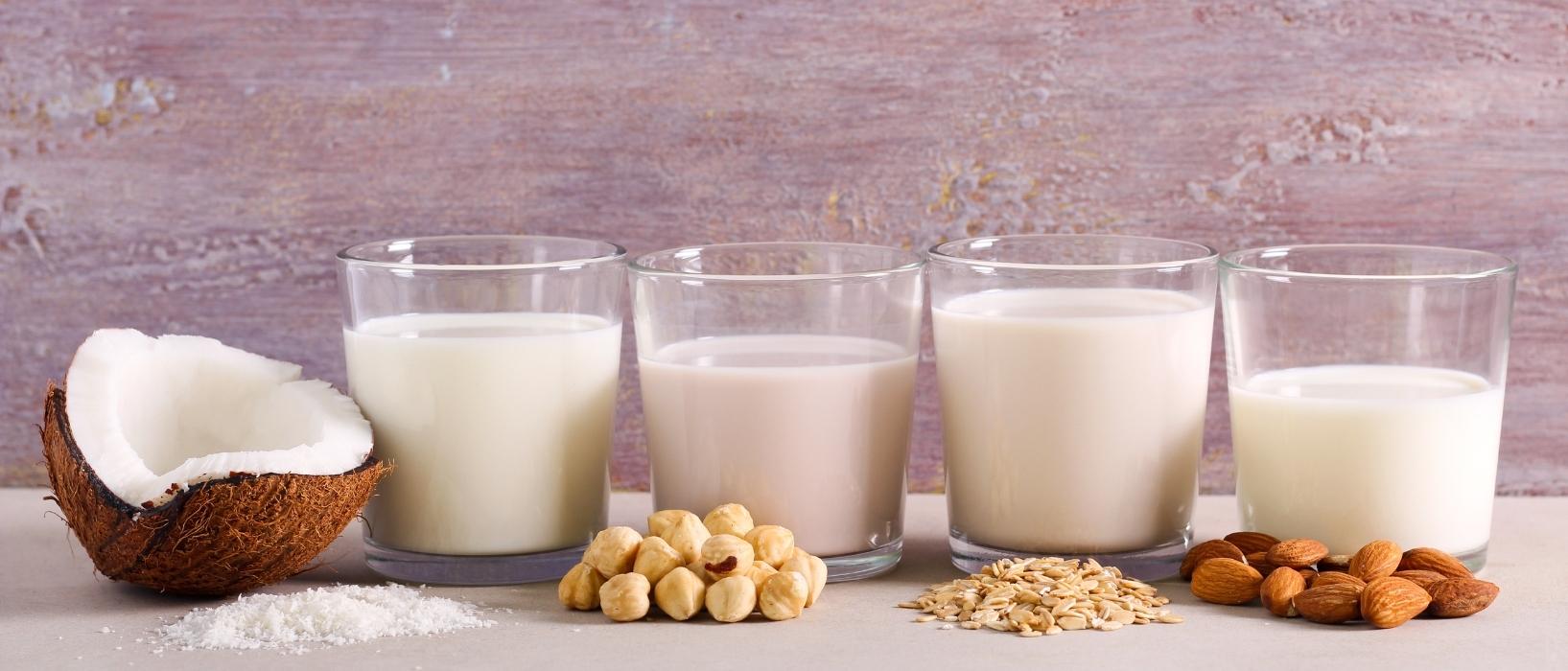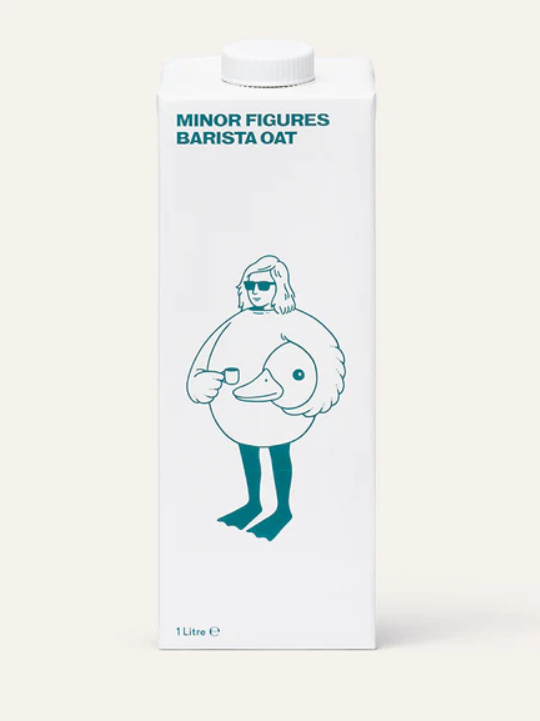
Most of us drink milk, even if it’s just in our cereal and our coffee. But one thing is clear: dairy is not good for the planet.
A 2018 study by researchers at the University of Oxford showed that producing a glass of dairy milk creates almost three times more greenhouse gas emissions than any plant-based milk and it consumes nine times more land than any of the milk alternatives. This is because land is required to pasture the cows and grow their feed, which the animals belch out in the form of methane (a greenhouse gas).
Thankfully, there are plenty of alternatives out there. But plant milks are not all equally sustainable and, in fact, can be detrimental since crops have to be produced in mass quantities.
So, what milk is best for the planet?
Almond
Perhaps the most popular dairy milk alternative, it is becoming more commonly known for its negative environmental impact.
While almond trees occupy smaller amounts of farmland compared with other crops grown for milk, this benefit is overshadowed by the negative impacts of almond farming in the US. Concentrated almost entirely in California’s arid Central Valley, almonds are the largest speciality crop in the US, and the orchards cover a region the size of Delaware.
Almonds require more water than any other dairy alternative, consuming 130 pints of water to produce a single glass of almond milk, and satisfying continual demands for larger almond crops is also placing unsustainable pressures on US commercial beekeepers.
Hazelnut
For consumers who want the nutritiousness and tastiness of a nut milk but without the environmental impacts of almond farming, the hazelnut might be a better choice.
Like all nuts, hazelnuts grow on trees that pull carbon from the atmosphere and help reduce greenhouse emissions rather than increase them. Hazelnuts are environmentally superior to almonds in that they are pollinated by the wind rather than commercial honeybees and they grow in moist climates, such as the Pacific north-west, where water is less of an issue.
Coconut
Coconut milk is thought of as very healthy, but in the Philippines, Indonesia and India where they grow, pickers are often paid less than a dollar a day.
Because coconut trees only grow in tropical climates, the pressure to meet global demand is causing exploitation of workers and destruction of rainforests. “Coconut is an absolute tragedy and it makes me really sad,” Isaac Emery, a food sustainability consultant. “I love cooking with coconut milk but I don’t feel good about buying coconut products. Farmers in Indonesia should be growing food to feed their families instead of meeting international demands.”
To avoid supporting unsustainable practices, you should choose coconut products that are certified Fair Trade.
Be The Climate Solution
Soy
According to one study, soy milk is a joint-winner on the sustainability scale. Plus, soy is the only plant milk that comes close to offering a protein content comparable to dairy. It was the go-to alternative long before almond milk came into vogue – but then soy fell out of favour.
The primary environmental drawback to soy milk is that soybeans are grown in massive quantities around the world to feed livestock for meat and dairy production. Large swaths of rainforest in the Amazon have been burned to make way for soy farms. Of course, there are work-arounds for this if you make sure to buy certified sustainable soy milk.
Oat
Oat milk is quickly rising in popularity and even recently surpassed almond milk as the fastest-growing dairy alternative. Unlike almonds, however, there are already plenty of oats to go around. Oats are also grown in cooler climates and are therefore not associated with deforestation in developing countries.
The only drawback with this option is that most oats come from mass-produced, monoculture operations where they are sprayed with pesticides right before harvest. However, many brands, including the popular Oatly brand, are certified glyphosate-free.
“I’m excited about the surge in oat milk popularity,” says Liz Specht, associate director of science and technology for the Good Food Institute, a not-for-profit that promotes plant-based diets. “Oat milk performs very well on all sustainability metrics. I highly doubt there will be unintended environmental consequences that might emerge when the scale of oat milk use gets larger.”

If you’re looking to get into oat milk a wonderful B Corp-certified brand to try is Minor Figures.
They make barista-quality oat milk which is specifically formulated to blend perfectly with any speciality coffee.
Just by forgoing dairy, Minor Figures customers have saved 62,762 tons of CO2e from entering our atmosphere since July 2018. That’s like driving to Mars in a regular car. Or driving to the moon and back some 668 times.
When it comes to land use, since 2018, Minor Figures drinkers alone have made space for 19,255 hectares (or 47,580 acres) of land. And water use? They’ve saved 13,116,381,829L of water from being wasted since 2018 alone.
Delivered to your door every month, you’ll never again have to dash to the corner shop in a dressing gown or worry about forgetting to place your order.
You can shop Minor Figures here and use FIRSTTIMER for 10% off your first order, or subscribe for 10% off every order.
Reach Net Zero
Find out how Play It Green can help you or your business




